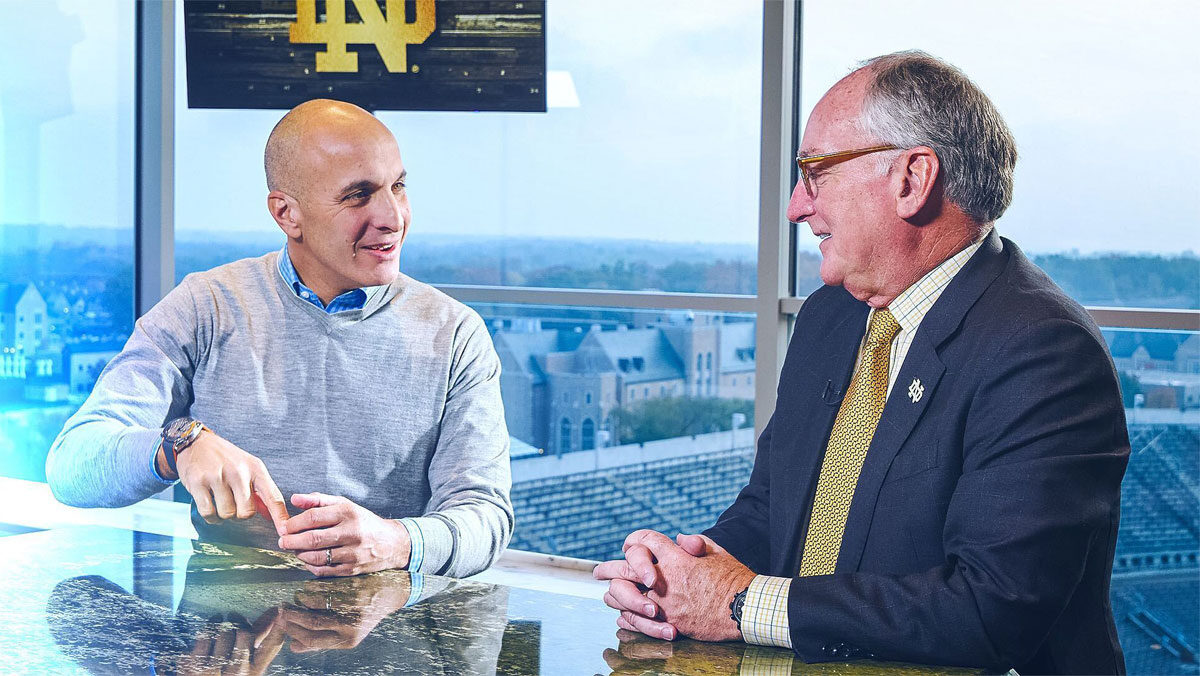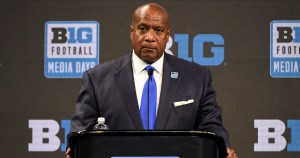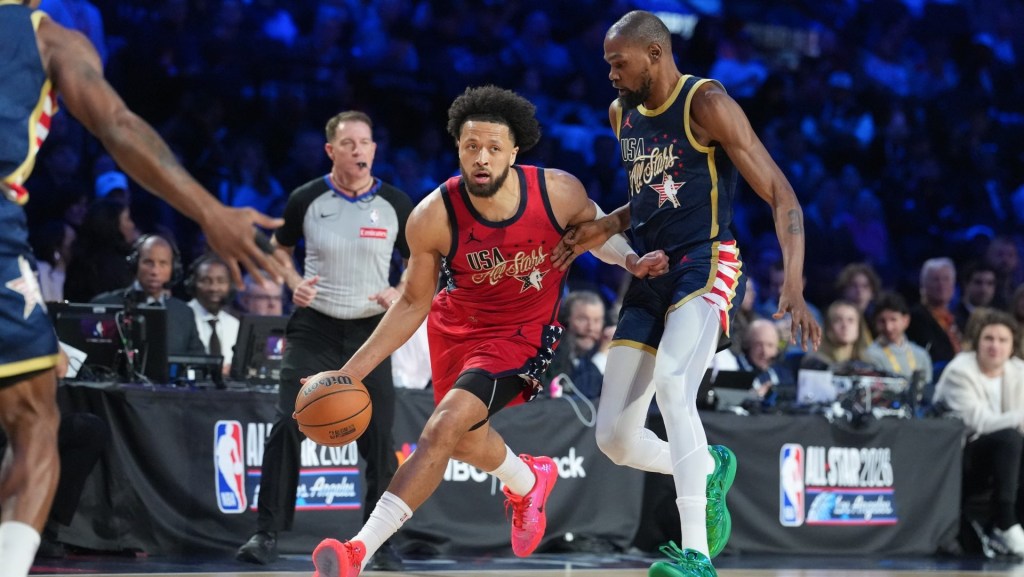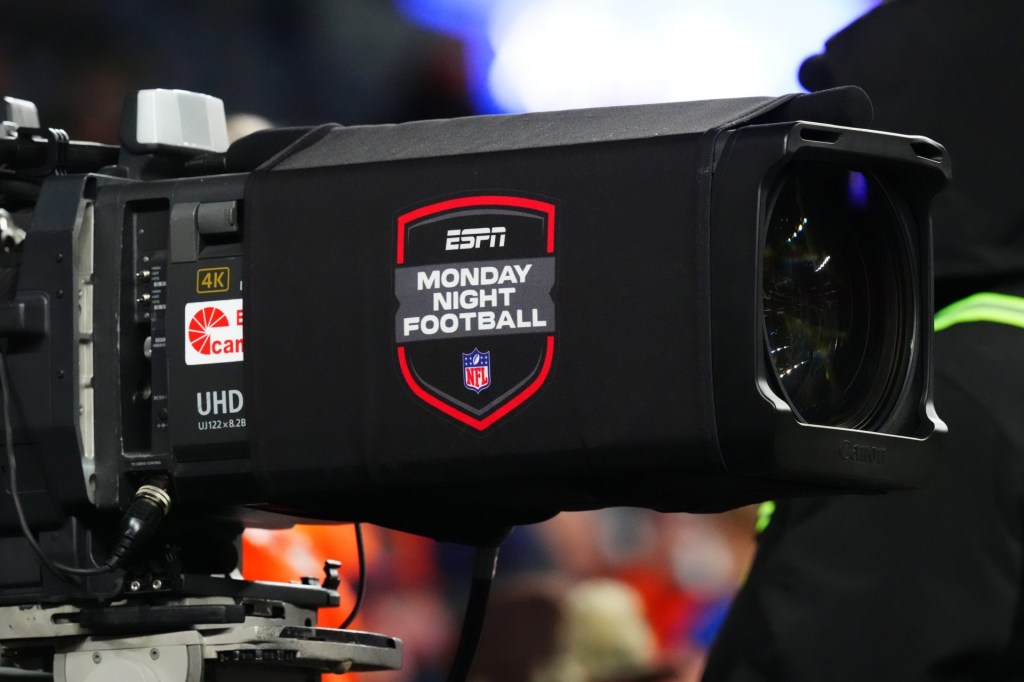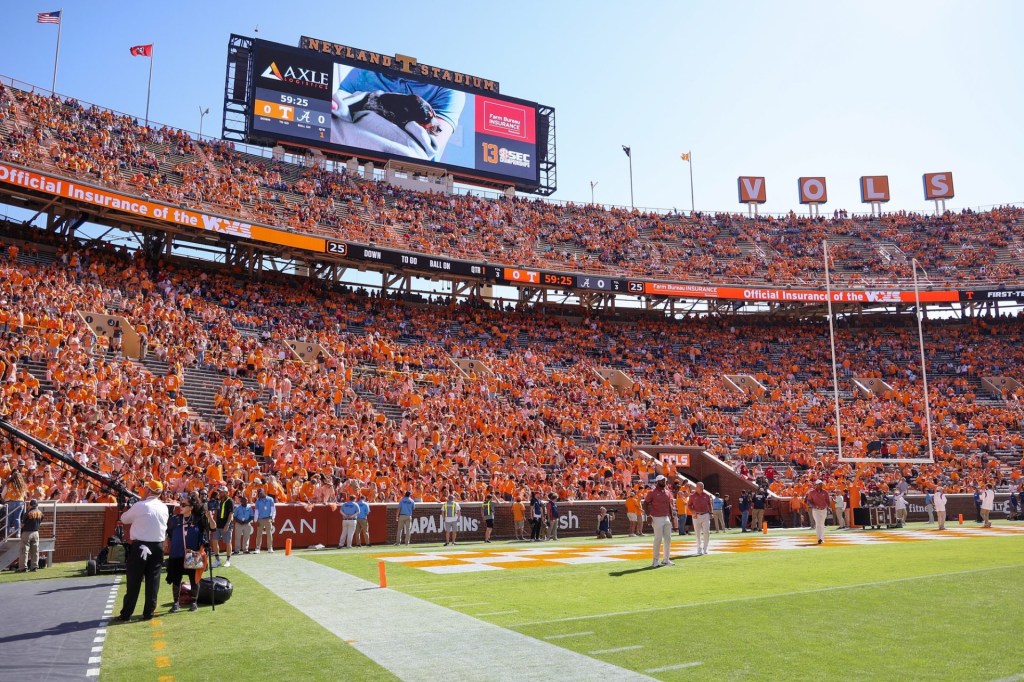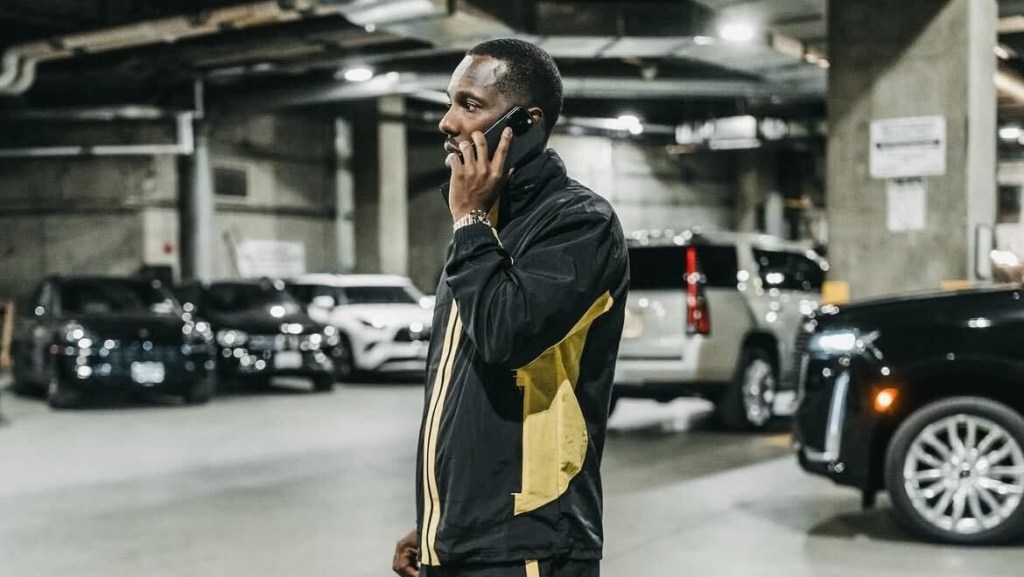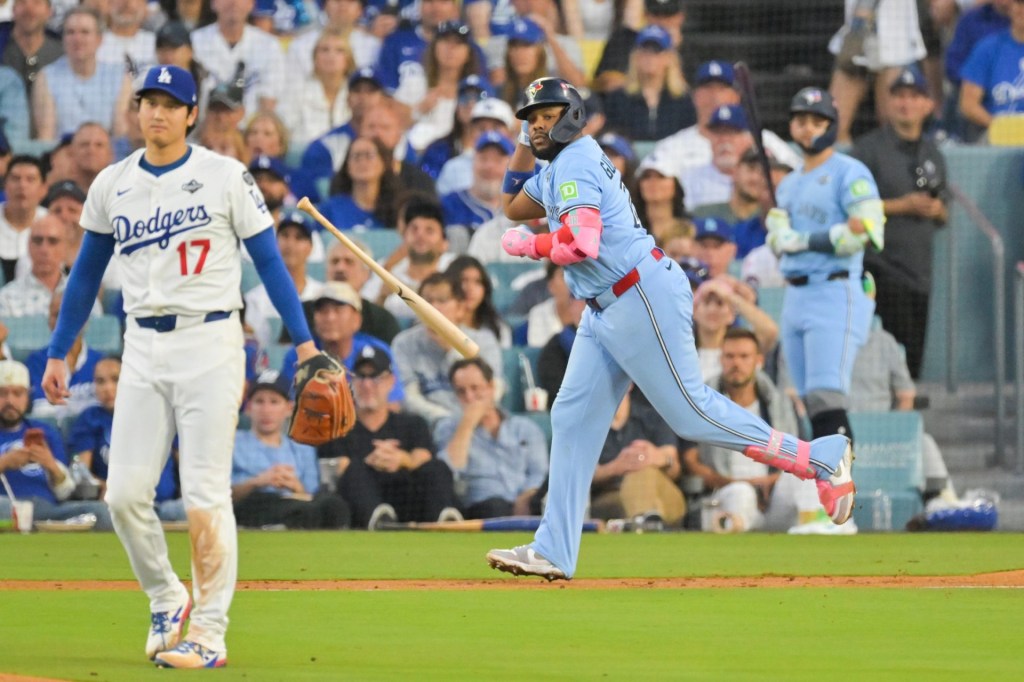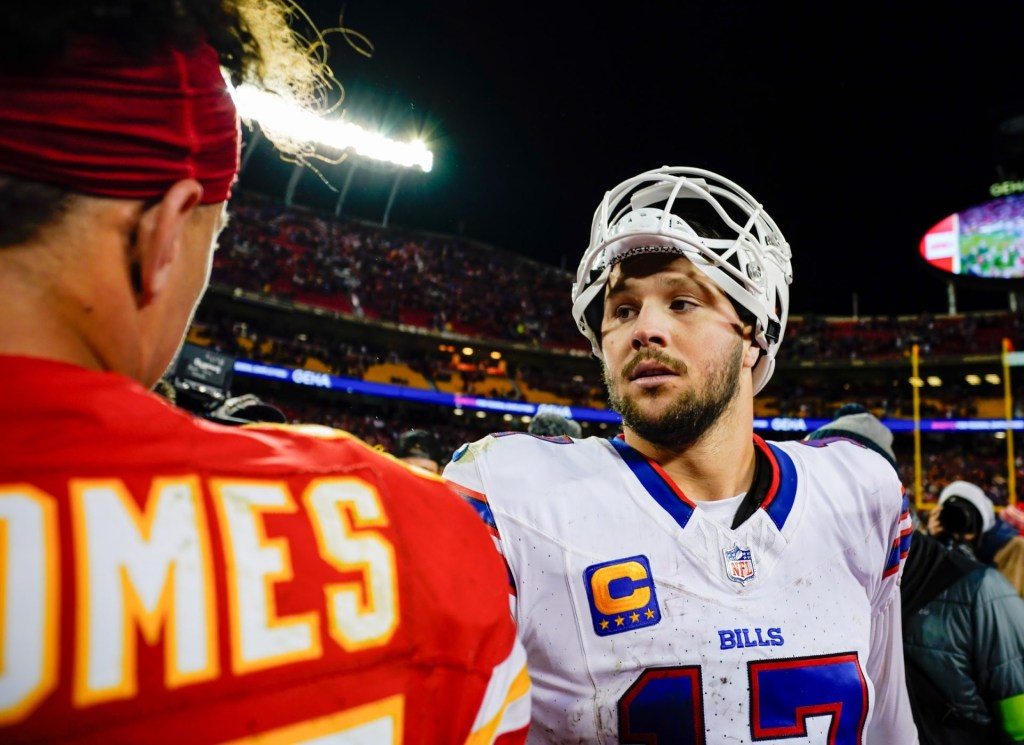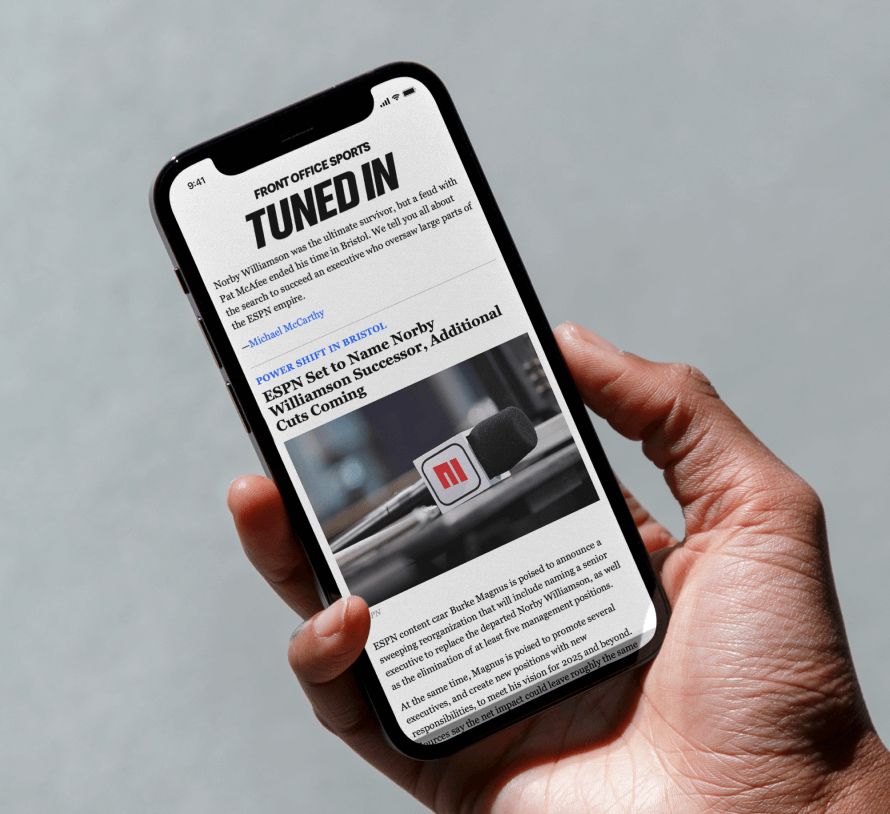The joke inside NBC Sports was if chairman Pete Bevacqua was ever offered the athletic director job at his alma mater Notre Dame, he’d take it in a heartbeat.
That’s precisely what happened on Thursday as Bevaqua accepted an offer to succeed Jack Swarbrick as Notre Dame’s director of athletics next year.
The move was not a surprise. Bevacqua is just the latest top sports TV executive to migrate to the college ranks.
Big Ten Commissioner Tony Petitti and American Athletic Conference Commissioner Mike Aresco are both former CBS Sports executives.
Former ESPN executive John Wildhack got the ball rolling back in 2016 by shifting from the Worldwide Leader in Sports to Syracuse University as director of athletics.
Several factors are driving the TV-to-college trend. Media rights revenue is the biggest factor.
Like professional sports leagues, the power conferences and power schools now recognize media rights fees as their “lifeblood,” according to Andrew Brandt, the former Green Bay Packer executive turned executive director of Villanova University’s Moorad Center.
“We are long past the days of college athletic directors as administrators who schedule games and handle ticket sales. The job is much more complicated and requires strategizing around fundraising, player rights, legal changes, and – perhaps most importantly – media,” said Brandt, who also writes the “Sunday Seven” newsletter.
“As with professional sports, media revenue is the lifeblood of big-time college sports. These hires reflect that, leveraging the person’s relationships and knowledge that will be vital for future revenues in both traditional media, digital, social and more.”
All you have to do is follow the money, noted John Kosner, the former ESPN executive turned founder of the Kosner Media consultancy.
He traces the Bevacqua and Petitti hires directly to the SEC Conference’s $3 billion, 10-year deal with ESPN/ABC and the Big Ten Conference’s $7 billion, seven-year rights deals with Fox Sports, NBC Sports, and CBS Sports.
“Everyone else is on notice – and playing catch up,” Kosner said.
T.K.Gore, the longtime advisor turned head of sport business development for Kiswe, agreed.
The No. 1 priority these days for colleges and conferences is “media mindshare” regarding rights, distribution, and audience growth.
“There is a need and skill set for people who possess a good track record and experience in negotiating rights deals, understanding the complex linear TV and DTC streaming ecosystem and content creation, value and selling,” said Gore. “For the conference commissioners, they are selling as well as recruiting. They are recruiting schools for new content to add value to their growing conference content empires.”
Big moves like this also come down to the personal passions of executives.
Mark Lazarus, chairman of NBCUniversal Television and Streaming, noted in a staff memo that Notre Dame was Bevacqua’s “dream job.”
It’s no coincidence that both Bevacqua and Wildhack returned to lead the athletic programs for their respective alma maters: the Notre Dame Fighting Irish and the Syracuse Orange. College loyalties run deep.
But these former sports media executives won’t have an easy transition, Kosner warned.
Besides mega media rights deals – which are often locked in for five to 10 years – new athletic directors and commissioners must quickly come up to speed on NIL and athlete compensation issues.
“That’s an education unto itself,” Kosner said.
LeslieAnne Wade, the former senior vice president at CBS Sports turned founder of White Tee Partners, has worked with Bevacqua, Petitti, and Aresco.
All three have negotiated major TV deals in the past, she said. All three are attorneys so that they will be well-versed to handle the NIL challenge.
“College sports – at the highest level – are increasingly media and marketing businesses. These leaders are proven in this space,” Wade said.
